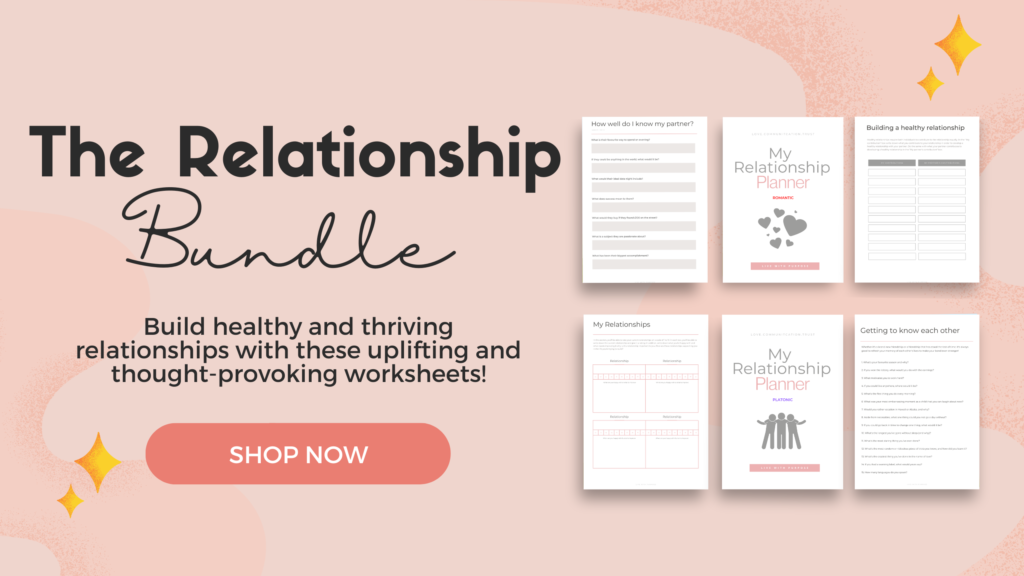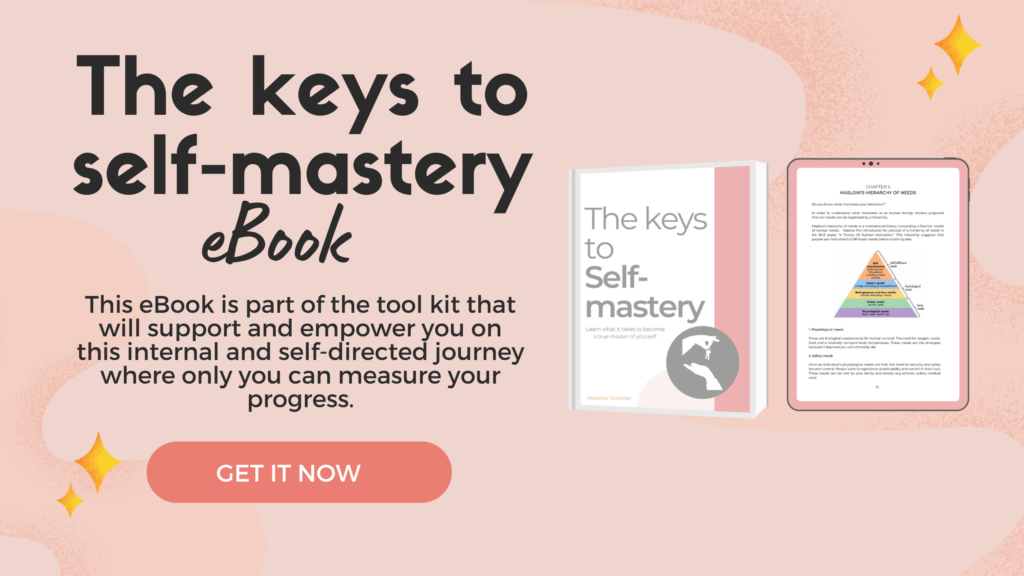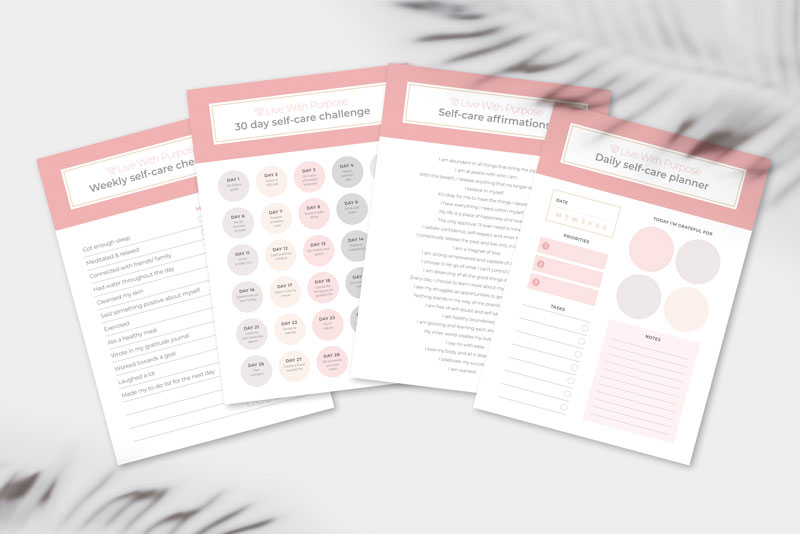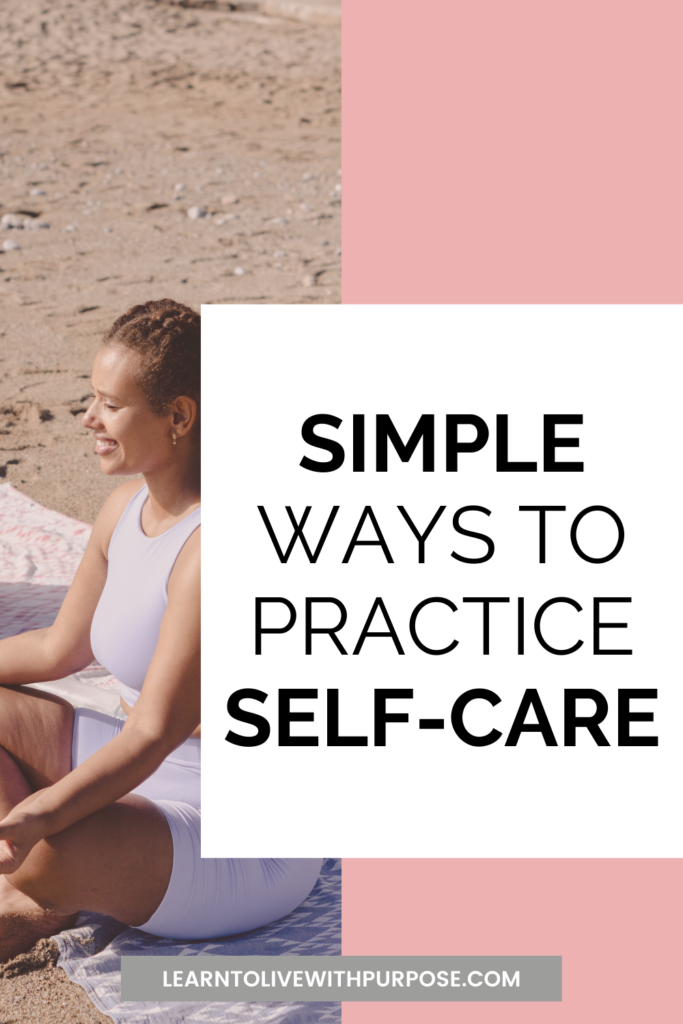
In a world that often emphasises the value of social connections, there’s an important distinction to be made between being alone and feeling lonely.
Many people associate solitude with a sense of isolation or sadness, but the truth is that being alone can be a fulfilling and rejuvenating experience. 😊
In this blog post, I will explore the nuances of being alone versus feeling lonely, understanding the importance of solitude, and embracing the positive aspects of both states.
Let’s get to it. 💕
The Difference Between Being Alone and Feeling Lonely:
Being Alone:
Being alone is a state of physical solitude, where you find yourself without the company of others. It can occur by choice or as a natural consequence of circumstances. Spending time alone provides an opportunity for self-reflection, relaxation, and personal growth.
It allows you to engage in activities that bring you joy, pursue hobbies, or simply enjoy a moment of peace. Being alone can be a deliberate choice, a time to recharge and connect with oneself. 🥰
Feeling Lonely:
Loneliness, on the other hand, is an emotional state that arises from a perceived lack of meaningful connections. It’s possible to feel lonely even in a crowded room if the connections are superficial or unfulfilling.
Loneliness is often characterised by a sense of emptiness, isolation, or a longing for deeper human connections. It’s a complex emotional experience that can impact mental and physical well-being. 😟

Embracing the Positive Aspects of Being Alone:
1. Self-Discovery:
Being alone provides an opportunity for self-discovery. It allows you to explore your thoughts, feelings, and interests without external influences. Use this time to reflect on your goals, values, and aspirations. Self-discovery is a crucial aspect of personal growth and can lead to a deeper understanding of oneself.
2. Independence:
Embracing solitude fosters independence. When you’re comfortable being alone, you become more self-reliant and less reliant on others for your happiness. This independence can empower you to make decisions based on your own needs and preferences, leading to a more authentic and fulfilling life. 🥰
3. Creativity:
Solitude often sparks creativity. When you’re alone with your thoughts, you have the mental space to generate new ideas, think critically, and engage in creative pursuits (yaay). Many artists, writers, and innovators find inspiration in moments of solitude, leading to the creation of meaningful and impactful work. 🎨
4. Rest and Rejuvenation:
Being alone allows for rest and rejuvenation. In a world filled with constant stimuli, taking time for solitude can be a form of self-care. It provides an opportunity to relax, recharge, and focus on activities that bring you peace and joy, contributing to overall well-being.

Addressing the Challenges of Feeling Lonely:
1. Cultivating Meaningful Connections:
If loneliness arises from a lack of meaningful connections, focus on cultivating relationships that nourish your soul. Seek out individuals who share your values and interests. Join clubs, organisations, or communities where you can meet like-minded people. Focus on getting yourself out there. Quality connections are often more fulfilling than a large social circle. 🫂
2. Volunteering and Giving Back:
Engaging in volunteer work or contributing to your community can alleviate feelings of loneliness. By helping others, you not only make a positive impact on the world but also connect with individuals who share a common purpose. Volunteering provides a sense of belonging and fulfillment.
3. Seeking Professional Support:
If loneliness becomes a persistent and overwhelming emotion, maybe consider seeking professional support. A therapist or counselor can provide guidance and a safe space to explore the root causes of loneliness. Addressing these issues with professional help can lead to a more fulfilling and connected life. 🫶
Finding Balance:
The key to a fulfilling life lies in finding a balance between being alone and fostering meaningful connections. Embrace solitude as a time for self-discovery, creativity, and rejuvenation. At the same time, actively cultivate relationships that bring joy and fulfillment. Recognise that both states are essential for a well-rounded and satisfying life. 💕
Conclusion
Being alone and feeling lonely are two distinct experiences, each with its own set of opportunities and challenges. Embracing solitude allows for self-discovery, independence, creativity, and rest. However, if loneliness creeps in, it’s crucial to address it by cultivating meaningful connections, volunteering, or seeking professional support. You are not alone. ❤️
Understanding the nuances between being alone and feeling lonely empowers you to navigate both states with intention and purpose. Ultimately, finding a balance between solitude and social connections contributes to a rich and fulfilling life. Embrace the positive aspects of being alone, foster meaningful connections, and savor the journey of self-discovery in this beautiful dance between solitude and companionship.
Pin this post for a reminder 📌 👇

Related Blogs
Things to Say “No” to for you to Live a Happier Life
How to Stop Settling For Less Than You Deserve
How to Become the Best Version of Yourself: A Guide For 20-Somethings
The Importance of Making Time for Yourself
As life gets busier, it becomes increasingly challenging to find time for oneself. However, it is an essential aspect of maintaining a balanced and healthy lifestyle. 🧘♀️
Making time for yourself allows for relaxation, reflection, and rejuvenation. It is an opportunity to disconnect from daily stresses and recharge your mental and emotional batteries.
Time for yourself is not a luxury, but a necessity. It is as crucial as eating a balanced diet or exercising regularly. Without it, we can become overwhelmed, stressed, and burnt out. In the long run, neglecting personal time can lead to serious health problems, both physical and psychological. 😬
The hustle and bustle of modern life often make us feel guilty about taking time out for ourselves. We are conditioned to think that being constantly busy is a sign of productivity and success.
However, this is a false belief. Making time for yourself is not a sign of laziness or selfishness. It is self-care, and it is crucial for your overall well-being and productivity.

Understanding the Concept of ‘Me Time’
‘Me Time’ is a term that is thrown around a lot these days. But what does it really mean? Simply put, ‘me time’ refers to the time set aside for doing things that you enjoy, that relax you, or that allow you to be alone with your thoughts. It is a time when you are not accountable to anyone else, not your boss, not your family, not your friends.
Just you. 👑
‘Me time’ can be anything from reading a book, going for a walk, practicing yoga, gardening, or simply sitting quietly with a cup of tea.
It is not about what you do; it is about being present and engaged in what you are doing. It is about being mindful and enjoying the moment.
‘Me time’ is not about escapism or avoiding responsibilities. It is about balancing your needs with those of others. It is about understanding that you cannot pour from an empty cup. You need to take care of yourself first to be able to take care of others. 👭
The Benefits of Making Time for Yourself
Making time for yourself has numerous benefits. First and foremost, it reduces stress. 🛀
When you take time out to do something you enjoy, your body releases endorphins – the ‘feel good’ hormones. This reduces stress levels and boosts your mood.
Secondly, making time for yourself increases productivity. When you take breaks, you allow your mind to rest and recharge. This increases your focus and concentration, making you more efficient and productive.
Thirdly, making time for yourself improves your relationships. When you are relaxed and happy, you are more likely to be patient and understanding with others. This improves your relationships and makes you a better partner, parent, and friend. 👪
Furthermore, making time for yourself boosts your self-esteem. When you take care of yourself, you send a message to your subconscious that you are worthy of care. This boosts your self-esteem and improves your overall mental health.

Strategies to Make Time for Yourself Amidst a Busy Schedule
Doing things for yourself amidst a busy schedule may seem impossible, but it is not. With a little planning and prioritisation, you can find pockets of time for yourself every day and I mean every day. 🤷♀️
The first strategy is to schedule your ‘me time’. Just like you schedule meetings or appointments, schedule time for yourself. Block out a specific time each day for self-care. This could be in the morning before everyone else wakes up, during lunch breaks, or in the evening after everyone else has gone to bed.
The second strategy is to delegate tasks. Often, we take on more than we can handle, leaving no time for ourselves. Just work, work, work. Learn to delegate tasks to others, be it at home or at work. This will free up some time for you.There’s no need for you to do everything ad burn yourself out. 🙃
The third strategy is to say “No”. You cannot do everything for everyone all the time. Learn to say no to tasks or commitments that are not essential or do not bring you joy.
FREE SELF-CARE BUNDLE

GRAB YOURSELF OUR FREE SELF-CARE BUNDLE!
It’s time to take some time out for yourself love! Check out this four-page bundle of self-care goodness that you can use to relax, refresh and rejuvenate. You deserve it sis.
Pop your info in and download your bundle now ❤️
Practical Tips to Prioritise ‘Me Time’
Prioritising ‘me time’ is crucial to making it a reality. We are all about action over here! 💕
Here are some practical tips to help you prioritize ‘me time’.
Firstly, identify what you enjoy doing. What activities relax you? What hobbies do you enjoy? Make a list and keep it handy.
Secondly, plan your week ahead. Identify pockets of free time and schedule your ‘me time’ activities. Be flexible and willing to adjust as necessary.
Thirdly, set boundaries. Let those around you know about your ‘me time’ and request their support and understanding. Make it clear that this time is non-negotiable.
Lastly, be consistent. Make ‘me time’ a regular part of your routine. Consistency is key to making it a habit.
Speaking of building habits why don’t you check out our Personal Growth Bundle? It does what it says on the tin. 😉

Successful Individuals Who Make Time for Themselves
There are many successful individuals who understand the importance of making time for themselves and have integrated it into their daily routines.
Take for example, Bill Gates, co-founder of Microsoft. He is known for taking a week off twice a year for ‘think weeks’. During this time, he disconnects from work and spends time alone, reading and thinking. 🧠
Similarly, Oprah Winfrey, a media mogul and philanthropist, starts her day with 20 minutes of meditation. She believes that this self-care practice sets the tone for the rest of the day and keeps her centered and balanced.
These examples show that making time for yourself is not a luxury, but a necessity for success, productivity, and well-being. 🙂
Overcoming Obstacles: Dealing with Guilt and Other Barriers
One of the major barriers to making time for yourself is guilt. Many people feel guilty about taking time out for themselves. They feel that they should be doing something ‘productive’ or ‘useful’ instead. 🙃
The key to overcoming this guilt is to change your mindset. Understand that making time for yourself is productive.
It’s productive because it recharges your batteries and makes you more efficient and effective in the long run.
Another barrier is time. Many people feel that they do not have enough time to spare for themselves. The key to overcoming this barrier is effective time management. Prioritise your tasks, delegate, and learn to say no to non-essential tasks. 🙅♀️
Your time is precious! You don’t want to look back and wish you spent more time focusing on your wants and needs.
Incorporating ‘Me Time’ into Your Daily Routine
Incorporating ‘me time’ into your daily routine can be achieved in several ways.
Firstly, wake up a little earlier and spend the first 30 minutes of your day doing something you enjoy. This could be reading, exercising, meditating, or simply sipping your coffee in peace. ☕
Secondly, you can incorporate ‘me time’ into your lunch break. Instead of working through your lunch break, take a walk, read a book, or listen to your favorite podcast.
Thirdly, you can end your day with ‘me time’. Spend the last 30 minutes before bedtime doing something relaxing, like spending time with family, taking a bath, or practicing yoga. 👨👩👧
Tools and Resources to Help You Make Time for Yourself
There are many tools and resources available! These include time management apps, self-care apps, books on self-care, and online courses on time management and self-care. 🛀
Time management apps, like Todoist or Toggl, can help you organise your tasks and manage your time more effectively.
Self-care apps, like Calm or Headspace, can guide you through meditation sessions, provide relaxing music, or suggest self-care activities. 🧘♀️
There are also many books and online courses available on the subject of self-care and time management. These can provide valuable insights and practical tips to help you make time for yourself.

Conclusion: It’s Time to Revolutionise Your Routine
In conclusion, making time for yourself is crucial for your overall well-being and productivity.
It is not a luxury, but a necessity. So, revolutionise your routine, make time for yourself, and see the difference it makes in your life. 😁
Remember, you are worthy of love and happiness. The journey to self-love starts with a single step, so take that step today and start loving yourself today. 💖
Pin this post for a reminder 📌 👇

Related Blog
Things to Say “No” to for you to Live a Happier Life
How to Stop Settling For Less Than You Deserve
How to Become the Best Version of Yourself: A Guide For 20-Somethings
Have you ever felt like you’re just living for the weekend? That it takes all your energy and focus just to get through the week just so you can say “Thank God it’s Friday!”? 🥲
It’s a common problem, but it doesn’t have to be the norm. You can take charge of your life and break free from the weekend mindset. With a few simple changes, you can start living life to the fullest every day.
Let’s take a look at how you can make that happen. 🤗
What does it mean to “live for the weekend?”
Living for the weekend is an attitude that quite a few of us have, even if we don’t realise it. It means that we look forward to the weekend with a sense of relief and happiness, while we trudge through the week in a state of anticipation.
We see the weekend as our reward for a job well done and as a chance to “let loose” and have some much-needed fun. 😊
It’s not a bad thing, per se, but it can be a problem if we find ourselves counting down the hours until the weekend and feeling like we’re just going through the motions during the week.
When we’re living for the weekend, we’re not really living our lives. We’re just going through the motions until the weekend, when we can finally do something enjoyable.
Doesn’t sound that great, does it? 😬

What stops us from living life to the fullest?
There are a few things that can stop us from living life to the fullest. The most common is a lack of motivation, enthusiasm and self-discipline.
When we’re stuck in a rut or feeling overwhelmed, it can be hard to find the energy to do anything other than the bare minimum. 🤷♀️
We can also be held back by our own limiting beliefs. If we’re constantly telling ourselves that we can’t do something, we’re setting ourselves up for failure, because if you don’t believe you can do it then what would make you try in the first place? 🤔
You need to be able to recognise and challenge these negative beliefs, and have faith in yourself.
It can be difficult to live life to the fullest if you don’t know what that means for you. You need to be able to identify your goals and dreams and figure out how to make them a reality.
How to create a daily routine for success
The first step in living life to the fullest is creating a daily routine that sets us up for success. We need to make sure that we’re taking care of our physical and mental health, as well as our work and relationships.
Check out what your 9 core areas of your life are here.
First, we need to prioritize our health, health is wealth as they say. You should make sure that you’re getting enough sleep and exercise, eating healthy meals, and taking time for yourself. This will ensure that we have the energy and mental clarity to tackle our goals. 💪
We should also make sure to set aside time for work and relationships. A daily routine should include time for work, study, and any other important tasks (especially the ones you find enjoyable). It should also include time to connect with friends and family, either in-person or virtually.
Finally, you need to make sure that you’re taking time for yourself. We should make sure to do something that we enjoy every day, whether it’s reading a book, going for a walk, or watching a movie. 🎥
Want to get daily-guided help on building a daily routine for success? Check out our How to Se Goals & Achieve Them mini-course!

How to let go of stress and distractions
When we’re trying to live life to the fullest, it can be easy to get sidetracked by stress and distractions. We need to be able to recognise when we’re getting overwhelmed and take steps to reduce our stress levels and not just on the weekend!
One way to do this is to practice mindfulness. This means being aware of our thoughts and feelings and accepting them without judgment. It can help us to recognise when we’re getting overwhelmed and take steps to reduce our stress. 😮💨
It’s also vital to set some boundaries. We need to be able to say no to things that don’t serve us, and let go of activities that don’t bring us joy.
This will help to reduce our stress and make room for more meaningful activities. 🤗
Finally, you need to make sure that we’re taking breaks from technology. You should be mindful of how much time you’re spending on our phones and computers, and make sure to take breaks to do something else.
There is a world beyond our phones. 🌍
The benefits of living life to the fullest every day
Living life to the fullest can bring a lot of benefits. It can help us to feel more energised and motivated to tackle anything that life throws at us which in turn can give us a sense of satisfaction and accomplishment. 🏆
It can also help us to make meaningful connections with others. When we’re living life to the fullest, we’re more likely to be open and honest with the people around us, which can lead to stronger relationships.
It can also help us to find a sense of balance. When we’re living life to the fullest, we’re more likely to find a balance between work and play, which can help us to stay focused and productive. 😊

How to find the balance between work and play
Finding balance between work and play can be tricky, but it’s essential to live life to the fullest. 😊
First, we need to make sure that we’re setting realistic expectations for ourselves. You should be realistic about how much work you can get done and set aside time for leisure activities.
We should also make sure to schedule time for both work and play. We need to make sure that we’re taking time to do things that we enjoy and are not working all the time. You’ve only got one life. Are you really trying to spend it working your life away? I think not. 😬
Finally, you need to make sure that you’re taking breaks that are adequate to the amount of work you’re doing. Make sure to take regular breaks from work and leisure activities so that you can stay refreshed and productive.
How to make time for yourself every day
Making time for yourself is essential if you want to live life to the fullest. It can be hard to find the time, but it’s there if you look hard enough and it’s worth it. 🕒
First, you must ensure that you’re setting aside time for yourself every day. This could be as little as 30 minutes. Ideally you should be aiming for at least an hour of alone time with just your thoughts but if you can fit 30 minutes in, it’s better than nothing. 🤷♀️
We should also make sure that we’re doing something that we enjoy. This could be reading a book, taking a walk, or listening to music. The important thing is that we’re taking time to do something that makes us happy.
Finally, you need to make sure that you’re not overscheduling yourself. You should make sure that we’re leaving enough time to rest and recharge and don’t carry any sleep debt onto the next day.

Tips for living life to the fullest every day
Living life to the fullest can be a challenge, but it’s worth it. Here are a few tips to help you get started:
- Start each day with a positive attitude. Make sure to focus on the things that you’re grateful for, and set yourself up for success.
- Make sure to prioritise your health. Take time to exercise and eat healthy meals, and make sure to get enough sleep. 😴
- Make time for yourself. Set aside time every day to do something that you enjoy, and make sure to take regular breaks from work and leisure activities. 🎾
- Set realistic expectations for yourself. Make sure that you’re not overscheduling yourself, and that you’re leaving enough time to rest and recharge.
- Find balance. Make sure to find a balance between work and play, so that you can stay focused and productive.
Strategies for breaking free from the weekend mindset
Breaking free from the weekend mindset can be hard, but there’s always a way. Here are a few strategies to help you get started:
- Make a plan. Set yourself up for success by creating a daily routine, and make sure to prioritize your health, work, and relationships. 👪
- Challenge your limiting beliefs. Recognise and challenge any negative beliefs holding you back, and have faith in yourself.
- Let go of stress and distractions. Practice mindfulness, set boundaries, and take breaks from technology. 💻
- Find your purpose. Identify your goals and dreams, and figure out how to make them a reality.
- Make time for yourself. Set aside time every day to do something that you enjoy, and make sure to take regular breaks from work and leisure activities.

Let’s live life to the fullest! – Conclusion
Living life to the fullest every day is possible, even if you’re stuck in the weekend mindset. With a few simple changes, you can start living life to the fullest and find a sense of balance, satisfaction, and accomplishment. 😄
Take charge of your life and break free from the TGIF mindset. Your life is better than that. With a few simple changes, you can start living life to the fullest every day and become a better version of yourself.
You owe it to yourself. 🤗
Pin this post for a reminder 📌 👇

Related Blogs
10 Encouraging Signs You’re Doing Well in Life
Why Intentional Living is The Best Thing You Can Do For Yourself
How to Practice Emotional Regulation: Tips For Adults on How to Cope
Negative personal comments can be difficult to deal with as they can be hurtful and can undermine your confidence and self-esteem. 😞
Whether they come from family, friends, or strangers, it can be hard to know how to respond in a way that is respectful and effective. In this blog post, we’ll discuss how to respond to negative personal comments with grace and strength.
We’ll discuss the different reasons why people make negative personal comments, the benefits of responding with grace and strength, strategies for responding to negative personal comments, tips for responding to negative personal comments, how to respond to negative personal comments with empathy, how to deal with negative personal comments from family and friends, how to respond to negative personal comments in a professional setting, and strategies for dealing with online harassment.
Reasons Why People Make Negative Personal Comments
There are a few different reasons why people make negative personal comments. One of the most common reasons is to intentionally hurt someone else. 😕
This can happen in personal relationships, in the workplace, and online. In these cases, the person making the comment is likely trying to get a reaction out of the person they’re targeting.
Another reason people make negative personal comments is to make themselves feel better. They might be feeling insecure or threatened in some way, and they might use negative personal comments to make themselves feel more powerful.
Also, people might make negative personal comments out of ignorance or lack of understanding. In these cases, the person making the comment might not understand the implications of what they’re saying or how it might make the other person feel. 🤔
Regardless, the main takeaway from this is to not take it personally. Easier said than done, I know. But it’s taking it personally that allows other people’s negative comments to get under your skin and make you act against your character.
Know who you are and what you stand for. 😌
QUIZ: What does success mean to you? Take the quiz now!

The Benefits of Responding with Grace and Strength
Responding to negative personal comments with grace and strength has many benefits. It can help you maintain your composure in difficult situations, and it can also help you build your confidence and maintain boundaries. 😊
When you respond to negative comments with grace and strength, you’re demonstrating to yourself and others that you’re capable of handling difficult situations and that you’re not going to let negative comments affect your self-esteem, you’re not going to allow it to affect your day and you’re not going to allow it to affect your mood for more than 10 seconds. 🙅♀️
Responding with grace and strength also shows the other person that you’re not going to be easily intimidated or manipulated. This can be especially important in situations where the person making the negative comments is trying to get a reaction out of you.
Don’t let them win.
Strategies for Responding to Negative Personal Comments
When it comes to responding to negative personal comments, there are a few strategies you can use.
First, it’s important to remember to stay calm and not let the comment get to you. 🤷♀️
It’s easy to get angry and defensive, but it’s important to remember that responding in an angry or aggressive way will only make the situation worse.
Another strategy is to remain polite and respectful. Even if the other person is being rude or disrespectful, try to respond in a polite and respectful manner, then leave the convo expeditiously. 🏃♀️
This will show the other person that their comments are not having the desired effect and that you’re not going to be easily intimidated.
Finally, it can be helpful to try to understand the other person’s perspective. This can be difficult, especially if the comment was deliberately hurtful, but it can help you to empathise with the other person and find common ground.

Tips for Responding to Negative Personal Comments
There are a few tips you can keep in mind when responding to negative comments.
First, it’s important to remember that you don’t have to respond to every comment. If the comment is particularly hurtful or offensive, it might be best to ignore it and move on. 😒
It can also be helpful to take some time to think about your response. This will help you to remain calm and ensure that your response is thoughtful and appropriate to the situation.
Finally, it’s important to remember that you don’t have to take the comment personally as mentioned above.
Negative comments can be hurtful, but it’s important to remember that they don’t reflect who you are or how others feel about you. 🙂
How to Respond to Negative Personal Comments with Empathy
In some situations, it can be helpful to respond to negative personal comments with empathy.
This can help to diffuse the tension and show the other person that you’re trying to understand their perspective. It can also help to build a bridge of understanding between you and the other person.
When responding to negative personal comments with empathy, it’s important to try to put yourself in the other person’s shoes and understand their feelings. 🤔
In order to do this, active listening is crucial. Ask them “What’s wrong/Why are you talking to me this way?” If they’re not ready to talk then that’s fine but take some time out and distance yourself for a bit until they’re ready to talk. 🤷♀️
It’s also important to remember to remain calm and not let the comment(s) get to you and focus on the positive aspects of the situation (if there are any) and look for ways to move forward.

Handling Negative Personal Comments from Family and Friends
Negative personal comments from family and friends can be particularly difficult to deal with. It can be hard to know how to respond in a way that is respectful and effective.
One strategy for dealing with negative comments from family and friends is to try to talk to them about their concerns. It’s important to remain calm and try to understand their perspective. This can help to diffuse the tension and show them that you’re trying to understand their feelings. 👂
It can also be helpful to set boundaries with family and friends.
Let them know that you don’t appreciate those comments and that you expect them to treat you with respect. This can help show them that their comments are unacceptable and that you’re not going to tolerate them. 🙅♀️
Being family doesn’t give anyone the right to be disrespectful towards you. Set your boundaries and stand your ground.
Don’t allow anyone to mess with you. 👈

How to Respond to Negative Personal Comments in a Professional Setting
Negative personal comments can also occur in professional settings. It’s important to remember that you have the right to be treated with respect in the workplace and that you don’t have to tolerate negativity.
When responding to negative comments in a professional setting, it’s important to remain calm and professional as your job is potentially on the line. 😬
It can also be helpful to talk to a supervisor or human resources representative if the comments are particularly offensive or inappropriate.
Finally, it can be helpful to document any incidents of negative personal comments in the workplace. This will help you to build a case if the situation escalates and you need to take further action. 🙃
Strategies for Dealing with Online Harassment
Online harassment is a serious issue and it’s important to know how to respond to these comments online.
One strategy for dealing with online harassment is to block or ignore the person making the comments. This will help to prevent further harassment and demonstrate to the other person that their comments are not acceptable. 😒
It can also be helpful to report the comments to the platform where they were made. Most social media platforms have policies in place to deal with abusive or offensive comments. You don’t have to put up with that crap.
Finally, it’s important to remember to take care of yourself. Online harassment can be traumatic and it’s important to take the time to address your emotional needs. 🛀
Conclusion
Negative personal comments can be difficult to deal with, but it’s important to remember that you can respond to them without acting out of character. 🥲
There are a few different strategies you can use, such as staying calm, remaining polite and respectful, and trying to understand the other person’s perspective. It’s also important to remember to take care of yourself and to seek help if you need it.
If you’re dealing with negative personal comments, remember that you don’t have to tolerate them. You have the right to be treated with respect and you can respond to negative comments with grace and strength. 💪
Pin this post for a reminder 📌 👇

Related Blogs
How to Stop Comparing Yourself to Others
Why Intentional Living is The Best Thing You Can Do For Yourself
We all have moments when we become defensive. It’s a normal response to feeling threatened or overwhelmed.
Unfortunately, being defensive can make it harder for us to connect with others, take constructive criticism, and move forward in life. Because at the end of the day… not everyone is going to be nice. 🤷♀️
If you’re looking for ways on how to stop being defensive, then you’ve come to the right place. In this blog post, I’ll go over what defensiveness is, why people become defensive, and strategies to help you move forward.
What is Defensiveness?
Defensiveness is a behavior or attitude that’s characterised by resistance to criticism or change.
It’s a form of self-protection that can arise in response to feeling threatened or overwhelmed. People who are defensive tend to become argumentative, deflect blame, or deny responsibility. 😟
Defensiveness is a natural response to feeling attacked or judged. It’s an attempt to protect yourself or your ideas, but it can have an adverse effect on relationships, communication, and overall quality of life.
Why Do People Become Defensive?
Defensiveness often arises in response to feeling judged, criticised, or attacked. It’s a way of protecting yourself from feeling vulnerable. It can also be a sign that you’re feeling insecure or overwhelmed.
You’re more likely to go from 0-100 in situations that make you feel uncomfortable. 😰
People become defensive for a variety of reasons, including low self-esteem, fear of failure, and negative self-talk. It can also be a sign of stress or anxiety.

Recognising Signs of Defensiveness
It’s important to recognise signs of defensiveness in yourself and others so you can take steps to address it. Here are some common signs of defensiveness:
- Avoidance or denial
- Argumentative behavior
- Blaming others
- Denying responsibility
- Defensive body language
- Deflecting criticism
- Interrupting conversations
- Making excuses
- Overreacting
- Taking criticism personally
If you recognize these signs in yourself, it’s important to take a step back and analyse why you’re feeling defensive. 🤔
Remember it’s a natural defense but it’s your responsibility to realise it and do something about it. Don’t allow it to destroy your relationships.
Strategies for Overcoming Defensiveness
If you’re looking for ways to stop being defensive, here are some strategies that can help:
- Acknowledge your feelings: Take some time to reflect on why you’re feeling defensive. Acknowledge your feelings without judgment or criticism.
- Take a time-out: If you’re feeling overwhelmed, take a break and come back to the conversation later. This can help you gain perspective and think more clearly.
- Practice self-compassion: Cut yourself some slack. Everyone makes mistakes and has moments of insecurity.
- Challenge your negative thoughts: Replace negative thoughts with more realistic ones. 😄
- Listen actively: Listen to what the other person is saying without judging or interrupting.
- Ask questions: Asking questions can help you better understand the other person’s point of view.
- Apologise: If you’ve said something that was hurtful or offensive, apologise and try to make amends.
- Be assertive: Speak up for yourself in a respectful way.
- Practice mindfulness: Take a few deep breaths and focus on the present moment.
Tips for Managing Difficult Conversations
If you’re having a difficult conversation, here are some tips to help you stay calm and collected:
- Take responsibility for your emotions: Don’t blame the other person for your feelings.
- Use “I” statements: Speak from your own perspective without attacking the other person.
- Maintain eye contact: Make eye contact to show that you’re actively listening.
- Avoid absolutes: Avoid using words like “always” or “never”. 🙅♀️
- Try to understand the other person’s perspective: Put yourself in the other person’s shoes and try to see things from their point of view.
- Speak calmly: Keep your voice level and speak slowly.
- Remain open-minded: Be open to new ideas and other perspectives.
Self-Care Practices to Reduce Defensiveness
Self-care is an important part of managing defensiveness. Here are some self-care practices that can help:
- Exercise: Exercise can help reduce stress and boost your mood.
- Meditation: Meditation can help you gain perspective and increase self-awareness.
- Journaling: Writing down your thoughts and feelings can help you process them in a healthy way.
- Get enough sleep: Lack of sleep can cause you to be more easily triggered. 😴
- Connect with nature: Go for a walk or spend some time in nature to reduce stress.
- Spend time with friends and family: Connecting with loved ones can help you feel more supported and less alone.

How to Face Criticism Without Becoming Defensive
No one likes to be criticised, but it’s an inevitable part of life. Here are some tips for facing criticism without becoming defensive:
- Listen without judgment: Listen to what the other person is saying without judging or interrupting.
- Ask clarifying questions: Ask questions to better understand the other person’s point of view.
- Validate their feelings: Acknowledge and validate their feelings without taking it personally.
- Focus on solutions: Try to find a solution that works for both of you.
- Take responsibility: Don’t blame the other person or make excuses. Take responsibility for your actions.
- Learn from your mistakes: Use criticism as an opportunity to learn and grow. 🪴
How to Be Assertive Without Being Defensive
Being assertive can help you express your needs and opinions in a respectful way. Here are some tips for being assertive without being defensive:
- Use “I” statements: Speak from your own perspective without attacking the other person.
- Be direct: Be honest and direct when expressing your opinions or feelings.
- Stay calm: Take a few deep breaths and focus on staying calm and centered. 😮💨
- Be specific: Be clear and specific when expressing your needs.
- Acknowledge the other person’s perspective: Show that you’re listening and understanding the other person’s point of view.
- Respect boundaries: Respect the other person’s boundaries and opinions.

How to Practice Active Listening
Active listening is an important skill to have when it comes to managing defensiveness. Here are some tips for practicing active listening:
- Keep an open mind: Be open to different perspectives and opinions.
- Listen without judgment: Listen to what the other person is saying without judging or interrupting.
- Ask questions: Ask clarifying questions to better understand their point of view.
- Reflect back: Reflect back on what the other person is saying to show that you’re listening.
- Don’t interrupt: Let the other person finish before speaking. 👂
- Respect boundaries: Respect the other person’s boundaries and opinions.
How to Listen Without Being Defensive
Listening without being defensive is an important part of having healthy relationships. Here are some tips for listening without being defensive:
- Take a step back: Take a few deep breaths and focus on staying calm and centered.
- Acknowledge your feelings: Take some time to reflect on why you’re feeling defensive. Acknowledge your feelings without judgment or criticism. 😌
- Listen without judgment: Listen to what the other person is saying without judging or interrupting.
- Ask questions: Ask clarifying questions to better understand the other person’s point of view.
- Validate their feelings: Acknowledge and validate their feelings without taking it personally.
- Focus on solutions: Try to find a solution that works for both of you.

Re-Routing Unhelpful Thoughts
If you’re struggling with defensiveness, it’s important to re-route your unhelpful thoughts. Here are some tips for re-routing unhelpful thoughts:
- Challenge your negative thoughts: Replace negative thoughts with more realistic ones. 💭
- Reframe your mindset: Reframe your mindset by focusing on the positive.
- Let go of perfectionism: Don’t expect perfection from yourself or others.
- Practice gratitude: Focus on what you’re grateful for to gain perspective.
- Replace negative self-talk: Replace negative self-talk with positive affirmations.
- Speak kindly to yourself: Treat yourself with kindness and compassion.
How to Stop Being Defensive – Conclusion
Defensiveness is a natural response to feeling threatened or overwhelmed, but it can cause problems in relationships and communication. If you’re looking for ways to stop being defensive, the strategies outlined in this blog post can help. 😃
Remember to be kind to yourself and practice self-care. It’s also important to take responsibility for your emotions and practice active listening. With some practice and patience, you can learn how to manage defensiveness and move forward in life.
If you’re looking for more tips on managing defensiveness, feel free to reach out. I’m here to help. 💕
Pin this post for a reminder 📌 👇

Related Blogs
Simple Ways to Practice Self-Care
Today, we’re all bombarded with a constant stream of information and sensory stimulation. Many people struggle to keep up with it all and internalise the right amount of information. 🥲
The result is often an abundance of automatic negative thoughts (ANTs). These are unhelpful mental reactions to events that produce a feeling of distress and pessimism.
As much as you can, try not to let them get the better of you.
But how do you keep your automatic negative thought under control? 🤔
Sometimes, we’re so busy trying to make our lives perfect that we forget about the small things that make our lives more meaningful along the way.
When we forget to look at the bigger picture and focus on our inadequacies and what’s going wrong in our lives that’s when things start to spiral. 🙃
Then there are those moments when we start thinking negatively about things that aren’t even bothering us anymore – automatic negative thoughts in their purest form.
Here’s what you need to know about these types of thought, and how to get rid of them for good.
What are Automatic Negative Thoughts?
Thinking is an active process. It happens in your head, and it’s shaped by the information you receive.
Automatic negative thoughts are unhelpful thoughts that pop into your head unconsciously. 😒
These thoughts often result from a situation that made you feel anxious. ANTs may be triggered by perceived social inadequacies or by a moment of self-criticism.
They often go something like this: “You’re stupid for not knowing that. You’ve never done anything worthwhile. You’ll always be a loser.”
They’re negative, critical thoughts you have about yourself that are based on nothing but assumptions. 🤷♀️
Criticism that isn’t constructive doesn’t help you grow or improve. It’s just another way to distract yourself from the real issues.

How to Get Rid of Automatic Negative Thoughts
The first thing to know about ANTS is that they’re completely within your control.
This might sound crazy, but it’s true. If you want to get rid of ANTs, you’ll need to use the same techniques you would to overcome any other fear.
In other words, you need to face your anxiety head-on. Scary, I know. But doable. 🙂
Let’s take a look at some of these techniques, and how you can use them to get rid of your ANTs.
✨ Accept that you’re feeling anxious
Stop for a moment and acknowledge how you’re feeling. If you’re with a friend, explain why you’re feeling anxious. This will help you connect with your feelings, and you’ll see them for what they are. Alternatively, you can write your thoughts and feelings in a journal.
✨ Befriend your anxiety
Accept that it’s not dangerous or toxic, just anxiousness. You don’t need to be ashamed of it or avoid it.
✨ Look for logical explanations for your anxiety
Once you’ve calmed yourself down and accepted your feelings, take a step back and ask yourself what you were thinking. What thought triggered your anxiety? Was it something in the past, present or future?
✨ Practice mindfulness
Mindfulness is the ability to focus on the present moment. When you’re feeling anxious, this is exactly what you need to do. It’s a way of calmly and rationally evaluating your thoughts and feelings.
Want to learn more about mindfulness? Click here 👉 The Keys to Self-Mastery
✨ Find a way to release the stress
When you’re feeling stressed, the last thing you want to do is hold onto it. Instead of making your anxiety worse, find a way to release it. You can do this by doing something calming, like taking a walk or meditating.
Strategies to Overcome ANTs
Now you know a couple of ways on how to get rid of your automatic negative thoughts, you need to learn how to replace them with more helpful ones.
ANTS are super sticky, so it might take some time to completely get rid of them. Don’t be discouraged though,It gets better with practice. 🙂
Keep in mind, too, that it’s often helpful to identify your triggers. If you know that a certain type of person triggers ANTs in you, you can avoid them in advance.
The first thing to remember is that the way you think affects the outcome of your life. It’s worth remembering this fact because it might seem like a simple concept, but it’s not a concept that’s widely used to navigate life.
After all, we’ve been telling ourselves this for years. The truth is that the way you think about things determines how you feel about them. You have the power to change your feelings. 👈
It’s also important to practice self-compassion. Instead of beating yourself up for having negative thoughts, try to be kind and understanding.
Remind yourself that everyone has negative thoughts from time to time and it’s okay. It takes time and practice, but if you work hard, you can start to change your automatic negative thoughts.

How to Push Away ANTs That Are Holding You Back
Here are a few ideas for how to push away ANTs that are holding you back.
If you have any other strategies, feel free to add them in the comments section.
👉 Journaling
When you journal, you take the power out of your thoughts and put it back where it belongs – in your control. You have the ability to choose how you’re going to feel, and journaling gives you that power back.
👉 Post-its
Post-its have been used to overcome many forms of anxiety, and they work just as well for ANTs as they do for any other type of fear. Put a few up around your room, and stick them on your mirror if you need to remind yourself to push them away.
👉 Distracting yourself
ANTs and anxiety often revolve around your thoughts and feelings about things that happened in the past. To push them away, focus on the things in the present that are worth focusing on.
👉 Guided imagery
It’s designed to bring your attention back to the present moment, so it’s a great way to push away your ANTs. Look around you and focus on he objects that you are observing.
Conclusion
Automatic negative thoughts can be a real drag on our mental health, but there are things we can do to fight back against them. 👊
The first step is to become aware of when these negative thoughts arise. We can then pause and take a step back, and try to come up with a more positive thought.
It’s also important to challenge any negative thoughts that come up. Ask yourself if your thoughts are really realistic, and make an effort to replace them with more positive, realistic ones.
Finally, practice self-care. Whether it’s going for a walk, taking a break, talking to a friend, or doing something creative, it’s important to fill your life with joyful activities that can help counteract the effects of negative thinking.
With a little bit of effort, we can all learn to break the cycle of negative thinking and live a healthier and more fulfilling life. 😄
Pin this post for a reminder 📌 👇

Related Blogs
Letting Things Go: It’s Easier Than You Think
How to Get Your Life Back On Track When You’re Tired & Bored
It seems like every other week there’s a new article or social media post about the importance of letting go and moving on and how to let things go. But what does it mean to let things go? 😕
Does it feel freeing to be rid of something that no longer serves you? Or is it more difficult than it sounds? How do you know when it’s time to let go and move on from something? Are there any repercussions if you don’t let go of the past?
If you’ve ever felt like there are people, places, or things that have been holding you back from living your best life, this blog post is for you! Read on to learn why letting go is an important step toward self-love and self-acceptance. ❤️
What Is Letting Go?
When you’re ready to let go of something, you’re letting go of the idea that it has any kind of power over you. (Read that line again)
You’re being honest with yourself and your past actions and allowing them to be something they are — nothing more, nothing less. 🙅♀️
“When you’re letting go of something, you’re acknowledging that it’s not holding you back anymore,” says Psychology Today blogger, Dr. Nikki Goldstein. “You’re not getting rid of it, you’re ending the attachment you have to it and refocusing on yourself.”
So, what is letting go exactly? 🤔
It’s the process of releasing something that no longer serves you, whether you’ve outgrown it or don’t need it any longer. It can be difficult to let go of things that have meaning for you, but if you recognize when you’re holding on too tightly, you can begin to let go. In order to let go, you must first recognize when you’re holding on.

Why Is Letting Go Important?
For many people, accepting that they’ve been holding on to things that don’t serve them is a major step toward growth and self-acceptance.
People often cling to things and beliefs from their past because they feel unworthy, unsure, or insecure.
They may feel like they don’t deserve better circumstances, a better partner, or a different outcome in a certain situation. So, they try to hold on to the past in order to maintain these feelings of insecurity and worthlessness. 😔
Letting go of these unneeded things and people can help you feel more confident, secure, and free. It can also help you feel like you are living in the present moment instead of in the past and future.
Being present in the moment allows you to feel more happier and grateful for how far you’ve come in your life already. You’re able to make rational decisions using a clear mind rather than old habits and worrying about the future infiltrating your decision. 🧠
Why is It Hard to Let Go?
For many people, letting go feels like a waste of energy, money and time. After all, you’ve spent so much time and effort trying to hold on to a certain person, place, or thing, so why would you let it go? 😕
Letting go can be a scary process because you don’t want to feel like you’re “wasting” the time you’ve spent holding on to something that you no longer need. But, if you let go of unneeded things, people, and beliefs, you will be able to spend that time and energy on things that bring you more joy and satisfaction.
But how do I stop feeling like I wasted my time!? 🥲
The thing is… you didn’t waste your time. It was a lesson you needed to learn, it was something you needed to experience, it was something you needed to go through and end up on the other side of it.
Not everything in your life is going to be permanent. I know it’s hard to let something you thought was going to be permanent go, but you’ll be better and stronger for it.

How to Let Things Go
Try to remember that every experience, person, and place in your life has a purpose.
While you may have loved this person, place, or thing in the past, they are no longer serving you in the present. They may not have been the right fit for you, or you may simply have outgrown them. So, try to remember that. 🙂
This may be the hardest part of letting go. It is easy to justify staying in a situation that you know isn’t serving you.
You may feel like you’re letting someone down or that you’re not doing things right if you’re not still using the things or people. But, you must remember that the people and things in your life should be serving you, not holding you back.
It’s a tough internal process but you owe it to yourself to be happy. ❤️
Which Things Should You Cut From Your Life?
“When you are ready to let go of a relationship or aspect of your life, you need to ask yourself some tough questions,” says Dr. Goldstein. “Have you been letting it control you? Does it bring you joy? Are you letting it hold you back from other things in your life?”
Try to examine each of the relationships, aspects of your life, or things that you think you may want to cut out. ✂️
Ask yourself if you have been holding on to them because they used to bring you joy, if they have been holding you back from other things in your life, or if they simply no longer fit in with your lifestyle.
RELATED: Check out our Relationship Bundle – Includies romantic and platonic relationship worksheets.

Bottom line: Taking Care of Yourself is a Must!
When you know how to let things go that no longer serve you, you’re essentially freeing your time and energy so that you can focus on what brings you joy. 😃
Letting go of unneeded things and situations can help you feel lighter, freer, and more in tune with who you are as a person.
It can also help you avoid falling into the trap of getting caught up in the “pursuit of happiness”, which can be a dangerous trap. “You can’t put a price tag on happiness, but you can look for things and people that bring you joy and satisfaction,” says Dr. Goldstein. “Letting go does not have to mean losing something — it can mean finding something even better.” 😊
If you’ve ever felt like there are people, places, or things that have been holding you back from living your best life, then I hope this blog post help put some things into perspective for you. Letting go is an important step toward self-love and self-acceptance. It’s time to take that first step.
Pin this post for a reminder 📌 👇

Related Blogs
How to raise your standards and live your best life
Overworked, fatigued and stressed.
Does this currently sound like you? ☹️
Yes!? well then it’s time to start making your health a priority and create a plan to save yourself from burnout before it completely takes over your personal and professional life.
Patching over the cracks is not a viable solution, it’s time to treat the cause and not the symptom.
Burnouts are a result of a discrepancy between your input and output. For example, sometimes, you may feel that you’re putting a lot of work, heart, and soul into a project but not getting the desired results. The usual answer to this is to work even harder instead of stepping back and figuring out a way to work smarter. 🧠
Some warning signs of burnout that you must watch out for are stressful personal relationships, health issues such as back pain, hypertension, obesity, cognitive difficulties, fatigue, negative feelings and emotions, lost motivation to work, etc.
Research has proven that certain medical conditions like hypertension, coronary artery disease, and sleep disturbances can stem from extreme forms of burnout.
It’s a “No” from me 🙅♀️

Your stress can bleed into every task that you perform and deteriorate your personal relationships. So if you’re wondering how to stop yourself from burning out, we’ve got you covered! Read on to explore the top 10 tips to save yourself from burnout!
1. Disconnect from the World
This is one of the most important tips to save yourself from a much-dreaded burnout and its aftermath. To altogether leave your work behind and give yourself time to rejuvenate, you need to electronically disconnect from the outside world.
It’s all about you. 💆
Give yourself time to heal from the fatigue you’ve experienced all week at work. Make it a habit to designate a specific time of your day to answer emails and other important notifications. This will help you to manage your career better in the long run.
2. Listen to Your Body
You may think that the constant headache you’ve been experiencing is merely a result of dehydration or that the pain in your neck is due to a bad sleeping posture.
But, these constant pains and aches could be your body’s sign of telling you how stressed it is feeling. Burnout can lead to several clinical manifestations due to stress accumulation. Therefore, it is crucial that you listen to your body’s signals and beat the burnout!
Don’t put off taking care of your body or your body will force you to take days off. 🙃

3. Time to Relax
Just like you plan your work schedule, you need to schedule your time to relax as well. To nip the dreadful burnout right in the bud, you need to spare some time from your daily schedule to relax.
Taking out just 30 minutes from your hectic work schedule to read a book, dance, and go for a jog or a walk could do the trick! A good thing about sliding in time to relax in your work schedule is that it gives you something to look forward to!
Want to learn how to prioritise your goals and become a master of routine? Check out the How to set goals and achieve them mini-course!

4. Find Your Support System
Withdrawing from people and going into your own shell might seem like a tempting offer when you’re stressed. However, your closest friends and family members can be your allies in your battle against burnout.
Spending valuable time with friends and family who love and adore you will help alleviate your stress and help you create beautiful memories in life. If you’re unsure about how to deal with the current issues in your life, talking it out with your support system always helps! 👪
Involving your loved ones in finding a solution to your problems can make you feel supported. It can also help you gain more clarity on the ongoing issues in your life and arrive at a solution much more quickly.

5. Find the Source of Your Burnout
You might feel stuck in a never-ending cycle of burnout if you can’t find the source of it. Exploring the factors in your life that contribute to your daily stress is an important strategy for tackling it.
Most people believe that professional and work-related triggers are the prime reasons behind burnout. However, it could also result from:
- A demanding academic schedule.
- Personal relationship problems where you can’t figure out a solution that works for both parties.
- Taking care of a loved one suffering from a severe medical condition.
Overloading yourself with too many expectations creates an environment where burnout can fester. Ultimately, you reach your breaking point after trying to do way too much on your own, and that’s exactly when burnout occurs! 😬
The stress that accompanies a single problem is often manageable for most. However, the stress of dealing with multiple out-of-control problems simultaneously overwhelms us.
6. Take a Look at Your Options
Finding a solution to burnout isn’t as straightforward and easy as it may seem. The road to recovery post a stressful breakdown may not be an easy path. However, looking at the options available can guide you through your recovery.
For example, if you’re dealing with a stressful work environment where a boss keeps pestering you with work and doesn’t recognise your efforts, then finding a new job can be the first step towards improving your mental health. 💼
If you don’t want to leave your current job for financial or any other reasons, you can always talk to the HR department and find a solution.
TAKE OUR QUIZ: What does success mean to you?

7. Set Healthy Boundaries
To manage your stress efficiently and do what’s right for you, you must set healthy boundaries. For example, if you’re constantly getting too many invitations for new projects, you can take the following measures:
- Hit the pause button.
- Take a moment to breathe and comb through all the information you’ve received.
- Ask yourself whether you have the energy and time to give your 100% to this project.
- Ask yourself the value this new project will bring to your life.
Always think about how your “yes” to somebody else’s request is going to affect your life and your workload.
8. Do What Makes You Happy
One of the most vital tips to save yourself from burnout is to do what makes you happy. When you feel drained and overwhelmed with feelings of anger for a job/business you once loved, it’s a good idea to circle back in life and spend some time doing what you love the most. 💕
Take a pen and paper and jot down your favorite hobbies. Then, reconcile with lost best friends or go out for a hearty dinner with friends and family.
Apologise to your loved ones for snapping at them while you were stressed and engage in some calming activities such as yoga.

9. Self-Compassion Can Go a Long Way
Burnout can lead to piling up feelings of failure in your life. You might start believing that you’re incapable of achieving your dreams and will never succeed in life.
This is because you’ve pushed yourself above and beyond what you’re realistically capable of. In times like this, it is essential to remind yourself that it’s okay not to be perfect!
So what if you can’t complete 5 projects at once or can’t top your college exams? Who can do it all, really?
Ultimately, what matters is that you gave your best shot, and you must give yourself a good pat on the back for it because you deserve it. 🙂
10. Take the Help of a Therapist
If you feel that you’re on the verge of a mental breakdown and that the burnout you’re feeling in your daily life is impacting your relationships negatively, then it’s best to talk to a therapist.
With professional guidance to navigate your life in the right direction, you can get over your feelings of depression, hopelessness, and dissatisfaction.
Choosing to address your burnout is the first step toward your journey to recovery. A professional therapist can guide you through the rest of it.
There’s no shame in asking for help.
Final Thoughts – Tips to save yourself from burnout
If you’ve been feeling that your daily job or academics are taking a toll on your mental health, then it’s time for you to take a much-needed break.
The above-mentioned tips to save yourself from burnout can be your knight in shining armour in times of stress! So, keep them handy and remember always to keep your mental health ahead of everything else in life!
Pin this post for a reminder 📌 👇

Related Blogs
Things to say No to for you to live a happier life
How often do you forget to practice self-care?
You’ve got a list as long as your arm of all the things you have to do and you find work extremely overwhelming. To make time for everything you take shorter breaks, skip meals and have minimal to no social interactions. Leaving you stressed and overwhelmed by your countless responsibilities.
We often don’t think twice before putting self-care on the back burner but then we feel the mighty force of physical and emotional exhaustion, AKA BURNOUT. 😫
Self-care is crucial for Your physical, emotional and mental wellbeing. So, let’s look at some simple ways to practice self-care.
What is Self-care?
Self-Care is a broad term that essentially involves just about anything you do that makes you feel good about yourself externally and internally.
However, it’s important to know that not everything that feels good is self-care. Such as excessively eating unhealthy food, drugs, smoking and drinking excessive amounts of alcohol, which can sometimes be used as coping mechanisms.

These are self-destructive activities that create challenging emotions and are really a temporary relief of happiness.
When practiced correctly self-care has long-term benefits for both the mind and the body.
Self-care is just a few basic habits that are important for you to function. We all know that working smart + hard is crucial for success, but if you’re laying in a hospital bed or sitting in a doctor’s office because you’re burnt out and have ruined your health what is the point of it all? 🤨
Self-care isn’t a reward you give yourself after completing a mammoth task nor should you classify it as just painting your toenails once every blue moon.
Include some forms of self-care in your daily routine and include the ones that could take some planning (vacation/ spa weekend etc) in your personal monthly goals.
Emotional Self-Care
Self-care isn’t just about doing something physical. Learning to handle stress, anxiety and sadness can be helped by taking time away to process your feelings.
A lot of our emotions are to do with situations, experiences and memories that happened in the past that are being projected into the present.
We should still gently lean toward them (instead of repressing and suppressing it) so that we can allow them to come to the surface and deal with it appropriately.

What exactly are you feeling? What made you feel this way? What steps can you take right now to make yourself feel better?
Here are 10 ways to start incorporating emotional self-care into your daily routine starting today:
1. Learn to identify what triggers your emotions, then identify the different ways to consciously respond to those triggers without causing harm to yourself or others.
2. Call on others to help you when you feel overwhelmed. Whether that means offloading some of the tasks you’ve got to do or for just a stroll to a café to talk about your feelings.
3. Set boundaries for yourself and for others and stick to them.
4. Allow yourself to make mistakes.
5. Accept compliments without push back, just say a simple “Thank you”.
6. Be more aware of how you speak to yourself, your inner critic is not the true wisdom within you.
7. Give yourself three compliments each morning. Start your day off by working towards a positive self-image.
8. Identify activities that you enjoy and schedule them into your day.
9. Give yourself permission to feel your emotions, especially if they’re painful.
10. Learn to say No and serve yourself first.

Simple ways to practice self-care for your mind, body and soul
This post contains affiliate links. Read my full disclosure policy here.
I can’t stress enough how important it is that your self-care routine is specifically tailored to you and you alone. The things that rejuvenate you are going to be unique to your preferences and circumstances.
This means that you will have to go on your own journey of self-discovery to understand what self-care means to you and how you can get the most out of it.
Doing this can be one of the most rewarding, exciting and enjoyable experiences of your life, as you get to learn more about yourself as an individual and the healthy coping mechanisms needed to help you function through difficult times.
Don’t know where to start? Here are a few suggestions for self-care that addresses your mind, body and soul.
Mind
🧠 Keep a daily journal and offset your feelings
🧠 Schedule days where you do nothing at all and relax
🧠 Practice meditation
🧠 Find your creative outlet
🧠 Encourage yourself to laugh at old memories or funny videos
Body
💪 Exercise
💪 Get enough sleep. Adults need between 7-9 hours of sleep a night to function at their best.
💪 Eat healthily
💪 Wear an outfit that makes you feel amazing
💪 Get a massage or other spa treatment
Soul
🧘🏽♀️Let go of the negative people around you
🧘🏽♀️ Take yourself out on a date (Splurge a little)
🧘🏽♀️ Make time for the things that bring you joy daily
🧘🏽♀️ Practice self-reflection
🧘🏽♀️ Make time for therapeutic activities (E.g. getting into nature, listening to music)
“Take care of your body, it’s the only place you have to live”
Jim Rohn
If you incorporate any of the self-care tips mentioned in this blog into your daily routine, you are definitely on the right track to improving your life.
You’ll feel more connected to yourself and the world around you. You’ll find yourself taking pleasure in your small wins in life and nothing will seem as difficult as it was before.
Thanks for reading my simple ways to practice self-care! What self-care habits would you like to form?
Pin this post for a reminder 📌 👇

Related Blogs
Things to say “No” to for you to live a happier life
Did you know that people on my email list sometimes get exclusive discounts on my products? Join the community and save yourself some coins!
Freshly-squeezed inspiration, and no-nonsense tips + tricks to improve your life delivered to your inbox weekly.
Subscribe to my newsletter
Subscribe
You're all signed up!
Be sure to whitelist our email address so that all the goodies make it to your inbox.







